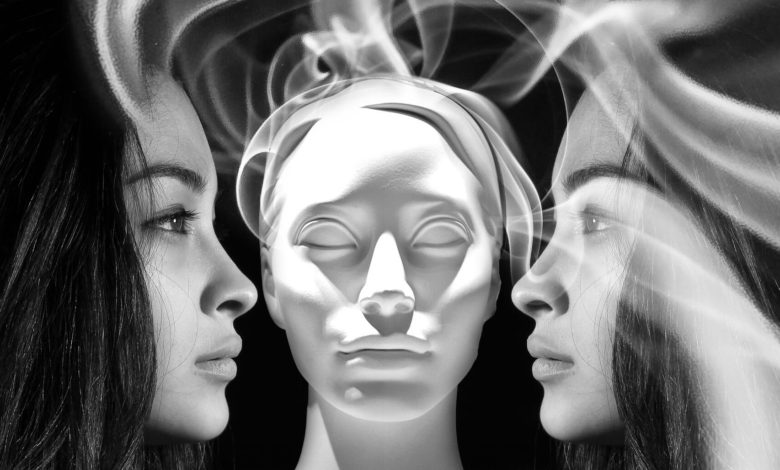Uses and Benefits of Zinc in Skin Care

It is necessary to take a small amount of zinc in the diet for a healthy skin. However, according to the researches, approximately 12% of the people participating in the screening are at risk of zinc deficiency. Zinc is effective in managing dandruff, warts, diaper rash and preventing sun damage. It is also not effective against acne, hair loss, eczema or psoriasis.
Zinc is touted in the media as a miracle ingredient that can cure everything from colds to cancer. While its benefits are overly exaggerated in some cases, research supports many of these claims. In fact, zinc has long been used to treat a variety of skin conditions and is one of the active ingredients in commercially available dandruff shampoos and mineral sunscreens. This article contains information about the benefits of zinc for skin care.
What is the Daily Zinc Intake Need?
Zinc is a mineral and is considered an “essential trace element” because a small amount is required for human health. It is responsible for a number of functions in the body and helps stimulate more than 100 enzymes. It is also necessary for the immune system to function properly. The body needs zinc to activate T lymphocytes (T cells), which control and regulate the immune system’s response to infected or cancerous cells. The daily intake recommended by experts for zinc is 8 mg per day for women and 11 mg for men. Common sources of zinc include red meat, chicken, and fish. Zinc supplements are available in pill form as well as topical creams.
Zinc Deficiency
Zinc deficiency is common when looking at the population around the world. Although zinc deficiency is seen less in some developed countries than in other countries, approximately 12% of the general population, especially poor communities, are at risk. This rate increases to 40% in the elderly. Symptoms of zinc deficiency include:
- Poor appetite
- Hair loss
- Irritability
- Hard, dry skin
- Poor wound healing
- Changing taste sensation
- Diarrhea
- Nausea
- Impaired immune function
In addition to the above, children with zinc deficiency may experience many problems such as stunted growth and cognitive development.
Zinc and Dermatological Health Conditions
There is some evidence to suggest that zinc may be beneficial in treating certain skin conditions, but more studies are needed to confirm its effectiveness. Here is the information obtained scientifically until today;
Preventing sun damage: Zinc oxide is an active ingredient in many sunscreen lotions. It works by scattering and reflecting the sun’s harmful ultraviolet rays away from the skin.
Acne: In a review study conducted by researchers at the University of Miami in 2017, it was concluded that zinc therapy was effective in acne treatment. However, due to multiple problems in the studies they reviewed, researchers cannot recommend zinc treatments for acne until properly designed studies are done.
Acrodermatitis enteropathica: This is a rare disease characterized by rash around the mouth and anus (pustular dermatitis), as well as diarrhea and abnormal nails. The body cannot absorb zinc from the gut, causing a zinc deficiency. Zinc supplements appear to be effective in managing the symptoms of this disease.
Warts: Several studies have demonstrated the effectiveness of oral zinc supplements in treating viral warts. In a 2002 study in the British Journal of Dermatology, common, plantar and plane warts were completely cleared in patients treated with oral zinc sulfate. In a 2010 study published in the Journal of Dermatology, the inventors also concluded that zinc is effective against multiple nongenital verruca and has no serious side effects. For this reason, zinc appears to be useful for the treatment of various types of warts.
Hair loss: Although lower zinc levels have been found to be associated with male and female pattern hair loss, zinc supplements do not appear to be helpful in reducing or solving this problem.
Eczema (scaly, itchy skin): Eczema is the most common condition in children. There is some evidence to suggest that children with eczema have low zinc levels. However, research has not yet confirmed whether oral zinc supplements are beneficial as treatment.
Psoriasis (red, irritated skin): Topical or oral zinc does not appear to be effective for psoriasis.
Melasma (brown spots on the face): Zinc is not as effective as standard hydroquinone therapy in treating melasma.
Skin wrinkles: There is some support for the use of a skin cream containing 10% vitamin C, acetyl tyrosine, zinc sulfate, sodium hyaluronate and bioflavonoid in the treatment of wrinkled skin. Applying such a mixture to facial wrinkles reduces their appearance after about three months.
Diaper rash: Oral and topical zinc seems to accelerate healing for babies with diaper rash.
Dandruff: A 2001 study examined dandruff-style abnormalities in the outer layer of the skin above the scalp-stratum corneum (SC) ultrastructure in the Journal of the American Academy of Dermatology. These abnormalities are thought to contribute to the shedding of people with dandruff problems. These abnormalities appear to resolve when treated with commercially available zinc pyrithione-containing shampoo. However, the specific causes of dandruff remain unclear, so further studies are needed.
Zinc and Wound Healing
One problem experienced by people with zinc deficiency is slow wound healing. Perhaps it has been suggested that zinc supplements or topical zinc may help wounds heal faster.
Burns
A 2006 study found that burn victims in Iraq had decreased zinc levels in the blood of burn victims. Burn patients given zinc supplementation via IV had an increase in antioxidants. The increase in antioxidants corresponded to improved healing time.
Diabetic foot ulcers: Foot ulcers are a serious problem for people with diabetes. Zinc can reduce ulcer size and help them heal faster. Data from a 2017 study on zinc and diabetic foot ulcers show that the group that took the zinc supplement experienced a greater size reduction in foot ulcers than the control group.
Leg ulcers: A review study from 2014 concluded that oral zinc sulfate is not more effective than a placebo in helping arterial and venous leg ulcers heal. However, a 2000 study suggests that zinc supplements may be beneficial in healing such ulcers in people with low serum zinc levels.
Uses and Benefits of Zinc in Skin Care
Therapeutic zinc applied to the skin and taken orally in amounts of no more than 40 mg per day appears to be well tolerated by most people. However, some may experience the following symptoms with zinc therapy:
• Nausea
• Vomiting
• Diarrhea
• Metallic taste in the mouth
• Damage to kidneys and stomach
Also, if scratched or cracked skin is applied, it can cause:
• Burning
• Stinging
• Itching
• Tingling
Patients who want to try zinc supplementation as a treatment should do so under the guidance of their doctor. Taking more than 225 mg of zinc per day is not safe and can lower copper levels in the blood. It can also alter iron processing, reduce immune system activity, and lower blood levels of high-density lipoproteins.





